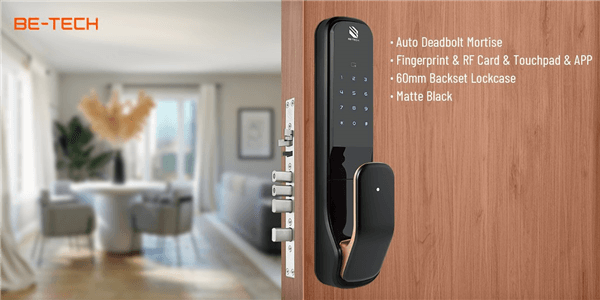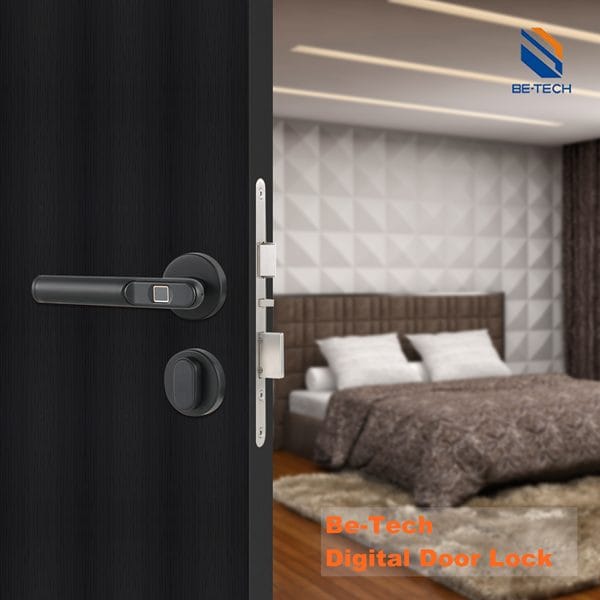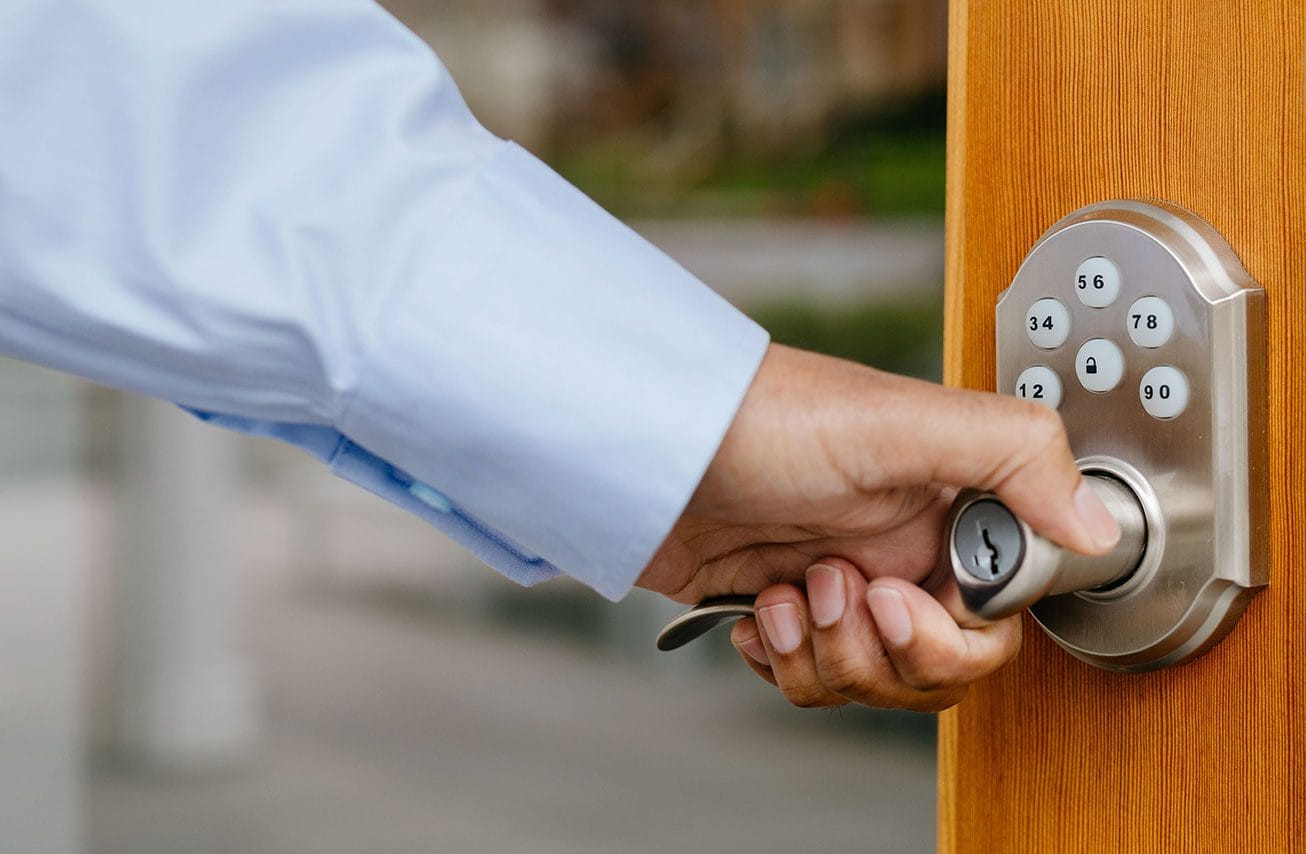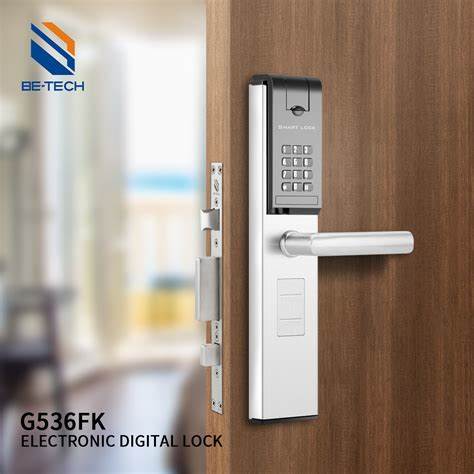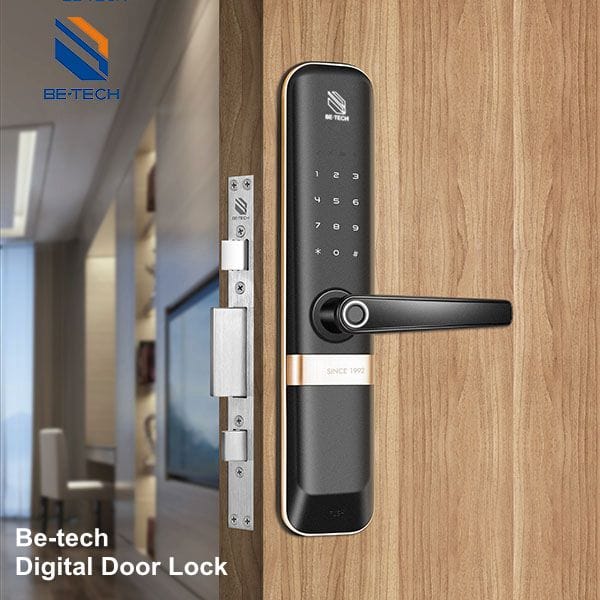In today’s digital landscape, where data security breaches are a constant concern, the hospitality industry faces unique challenges in safeguarding guest information and physical security. 78% of travelers prioritize safety when choosing a hotel, so hotels are increasingly turning to advanced technologies to fortify their security measures. Hotel lock encryption has emerged as a critical component of modern hotel security systems, providing a robust shield against unauthorized access and data breaches. This article will explore the evolution of hotel lock technology, explain the core concepts of encryption, and provide a comprehensive guide to ensuring guest privacy and security in the hospitality industry.
The Evolution of Hotel Lock Technology
The methods used to secure hotel rooms have undergone a significant transformation over the years, driven by advancements in technology and evolving security needs. Let’s take a journey through the history of hotel lock technology:
Mechanical Keys: The Traditional Approach
For centuries, mechanical keys were the standard method for securing hotel rooms. This simple approach involved a physical key that fit into a corresponding lock on the door. While mechanical keys served their purpose for a long time, they were inherently vulnerable to security risks. Keys could be easily lost, stolen, or duplicated, compromising the security of guest rooms.
Electronic Key Cards: A Step Towards Modernization
The introduction of electronic key cards marked a significant advancement in hotel security. These cards, typically embedded with magnetic stripes or RFID chips, provided a more secure and convenient alternative to traditional keys. Electronic key cards could be easily deactivated if lost or stolen, and they offered greater control over access privileges.
The Rise of Smart Locks and the Need for Encryption
With the advent of smart technology, hotel locks have evolved even further. Smart locks offer advanced features like keyless entry via smartphones, biometric authentication, and real-time monitoring capabilities. This interconnectedness has introduced new security challenges, making encryption an indispensable aspect of modern hotel lock systems.
Understanding Hotel Lock Encryption
What is Hotel Lock Encryption?
Encryption is the process of converting data into an unreadable format, making it incomprehensible to unauthorized individuals. In the context of hotel locks, encryption plays a vital role in protecting sensitive information, such as guest data, access codes, and communication between locks and hotel management systems.
Types of Encryption in Hotel Locks
Data Encryption: This type of encryption protects guest data stored within the lock system, including names, room numbers, and access credentials.
Communication Encryption: This encryption secures the communication channels between locks, keycard readers, and hotel management systems, preventing eavesdropping and data manipulation.
Encryption Standards and Compliance
Reputable hotel lock manufacturers adhere to industry-recognized encryption standards to ensure robust security. Common standards include:
- AES (Advanced Encryption Standard): A widely adopted standard known for its strong encryption algorithms.
- 3DES (Triple DES): An older but still relevant encryption standard often used in legacy systems.
Compliance with data privacy regulations, such as the General Data Protection Regulation (GDPR), is paramount in protecting guest information.
Types of Electronic Hotel Locks and Their Encryption
RFID Locks: The Industry Standard
RFID locks use radio frequency identification technology to grant access to guest rooms. Guests are provided with RFID key cards that communicate wirelessly with the lock, eliminating the need for physical keys. Many RFID locks utilize encryption to secure the communication between the card and the lock, protecting against unauthorized access. The Be-Tech BASE RFID (9004 Series) is an excellent example of a high-quality RFID hotel lock system. It uses a high-security stainless steel mortise lockcase and offers features like a panic release function and an audit trail that logs up to 1,000 events.
Mobile App-Based Locks: Enhancing Guest Convenience
Mobile app-based locks allow guests to use their smartphones as digital keys. These systems typically utilize Bluetooth Low Energy (BLE) technology to communicate with the lock. Strong encryption is essential in mobile app-based systems to protect the communication between the smartphone and the lock, preventing unauthorized access and data interception. The Be-Tech SHADOW II RFID series is designed for hotels that want to offer mobile keyless entry while maintaining strong security.
Biometric Locks: Embracing Advanced Authentication
Biometric locks use unique biological traits, such as fingerprints or facial recognition, to authenticate guests. These systems provide a high level of security, as biometric data is difficult to replicate. Encryption is crucial in biometric systems to protect the stored biometric templates and prevent unauthorized access to sensitive data.
Comparison of Electronic Hotel Lock Systems
| Feature | RFID Lock (Base RFID 9004) | Mobile App-Based (Shadow II RFID) | Biometric Lock |
|---|---|---|---|
| Access Method | RFID Key Card | Smartphone (Bluetooth) | Fingerprint, Facial Recognition |
| Encryption | RFID Communication | Bluetooth Communication | Data Storage, Template Protection |
| Convenience | High | Very High | Highest |
| Security | High | High | Very High |
| Cost | Moderate | Moderate to High | High |
Benefits of Hotel Lock Encryption
Implementing robust hotel lock encryption brings numerous advantages to hotels, enhancing security, improving guest experience, and strengthening the hotel’s reputation.
Elevated Security: Protecting Guest Rooms and Data
Encryption is the cornerstone of data security, safeguarding sensitive guest information and preventing unauthorized access to hotel rooms. By encrypting data stored within the lock system and securing communication channels, hotels can mitigate risks associated with:
- Data Breaches: Encryption makes stolen data unreadable, reducing the impact of data breaches.
- Unauthorized Access: Encrypted access codes and credentials prevent unauthorized individuals from gaining entry to guest rooms.
- Keycard Cloning: Encryption makes it significantly more difficult for criminals to clone or duplicate key cards.
Enhanced Guest Experience: Fostering Trust and Satisfaction
Guests are increasingly concerned about data privacy and security, especially when traveling. Hotels that prioritize security through robust encryption measures demonstrate their commitment to guest well-being, fostering trust and loyalty. By providing guests with a secure environment, hotels can:
- Increase Guest Confidence: Knowing their data is protected enhances guest confidence and peace of mind.
- Improve Hotel Reviews: Positive guest reviews often highlight security as a key factor in their satisfaction.
- Attract Security-Conscious Travelers: Strong security measures can be a differentiating factor in attracting travelers who prioritize safety.
Regulatory Compliance: Meeting Industry Standards
The hospitality industry is subject to data privacy regulations that mandate the protection of guest information. Implementing encryption helps hotels comply with these regulations, avoiding potential legal ramifications and financial penalties. Key regulations include:
- GDPR (General Data Protection Regulation): This comprehensive data privacy law sets strict guidelines for the collection, processing, and storage of personal data.
- PCI DSS (Payment Card Industry Data Security Standard): This standard outlines security requirements for organizations that handle payment card information.
Improved Hotel Reputation: Attracting Security-Conscious Travelers
Data breaches and security incidents can severely damage a hotel’s reputation, leading to lost revenue and a decline in bookings. By proactively implementing encryption and other security measures, hotels can:
- Build a Strong Security Reputation: A reputation for strong security can be a competitive advantage, attracting security-conscious travelers and corporate clients.
- Mitigate Reputational Damage: Effective encryption minimizes the impact of data breaches, reducing potential negative publicity.
Streamlined Operations: Boosting Efficiency and Productivity
Modern hotel lock systems with encryption can streamline operations and improve staff efficiency:
- Keyless Entry: Reduces time spent on issuing and managing physical keys.
- Remote Management: Allows staff to manage locks and access privileges from a central location.
- Automated Audit Trails: Simplifies security monitoring and incident investigation.
Key Considerations for Implementing Hotel Lock Encryption
Selecting and implementing a hotel lock encryption system requires careful consideration of security features, encryption options, system integration, and compliance requirements.
Understanding Encryption Options
Encryption Levels: Different encryption algorithms provide varying levels of security. Common encryption levels include:
- 128-bit AES: Offers a good balance of security and performance.
- 256-bit AES: Provides the highest level of security, ideal for highly sensitive data.
Key Management: Secure key management is crucial for ensuring the effectiveness of encryption. This involves protecting the encryption keys that are used to encrypt and decrypt data. Key management systems should incorporate secure storage, access controls, and key rotation practices.
Industry Certifications: Look for encryption providers and lock systems that have obtained industry certifications, such as FIPS 140-2 or Common Criteria, which validate the security and compliance of their products.
Choosing the Right Encryption System
System Compatibility: Ensure that the chosen encryption system is compatible with existing hotel infrastructure, including property management systems (PMS) and other security systems.
Scalability: Select a system that can accommodate future growth and technological advancements.
Vendor Expertise: Partner with reputable vendors that have a proven track record in providing secure and reliable encryption solutions. Be-Tech, for example, has over 20 years of experience in the hotel security industry and is a trusted partner for hoteliers worldwide.
Implementation and Deployment
Professional Installation: Engage experienced professionals to install and configure the encryption system correctly, ensuring optimal security.
Employee Training: Provide comprehensive training to staff on the use and management of the encryption system, emphasizing security best practices.
Testing and Validation: Thoroughly test the system before deployment to verify its functionality and security effectiveness.
Best Practices for Maintaining Hotel Lock Security
Implementing encryption is only the first step in maintaining a secure hotel environment. Ongoing maintenance and adherence to best practices are essential for sustained security.
System Updates: Staying Ahead of Vulnerabilities
Regularly update lock software and firmware to patch security vulnerabilities and address emerging threats.
Key Management: Protecting the Heart of Encryption
Implement secure key management practices, including:
- Secure Key Storage: Store encryption keys in a secure and tamper-proof environment.
- Access Controls: Restrict access to keys to authorized personnel only.
- Key Rotation: Periodically rotate encryption keys to reduce the impact of a potential key compromise.
Employee Training: Building a Culture of Security
Train employees on security best practices, including:
- Password Hygiene: Enforce strong password policies and encourage regular password changes.
- Phishing Awareness: Educate staff on how to identify and avoid phishing attacks.
- Physical Security: Emphasize the importance of securing physical access to sensitive areas, including server rooms and keycard management systems.
Security Audits: Regular Checkups for Optimal Protection
Conduct regular security audits to assess the effectiveness of encryption and other security controls, identify vulnerabilities, and implement corrective actions.
Conclusion
Hotel lock encryption has become an indispensable element of modern hotel security, safeguarding guest data and enhancing the overall guest experience. By implementing robust encryption solutions, hotels can elevate their security posture, protect guest privacy, and comply with industry regulations.
To ensure sustained security, it is crucial to adopt best practices for maintaining hotel lock security, including regular system updates, secure key management, employee training, and ongoing security audits.
Contact Be-Tech today for a personalized security consultation and discover how our advanced hotel lock solutions can elevate your hotel’s security to the next level.


